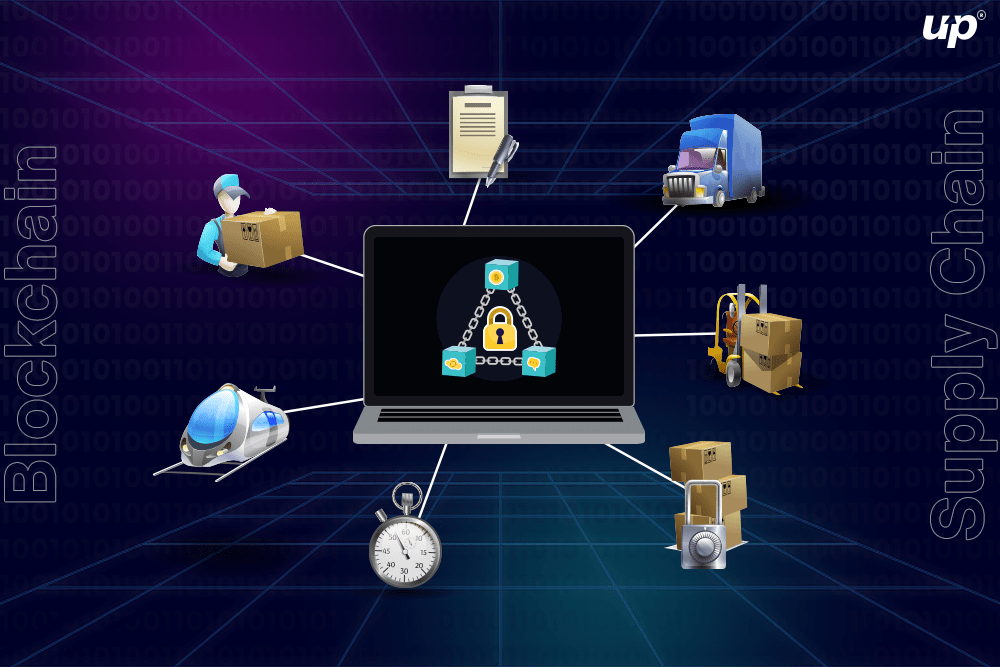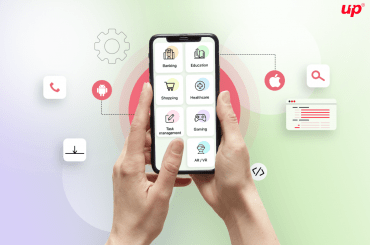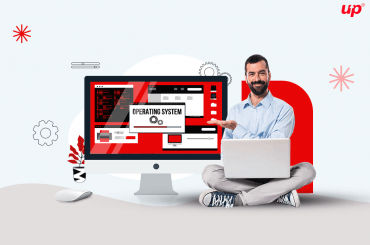When it comes to blockchain, it’s crucial to distinguish between the speculative crypto markets that the technology enables and the business solutions that its underlying digital ledger architecture makes possible. In this blog, a mobile app development company in USA explains how enterprise-grade applications developed using blockchain’s distributed ledger structure can provide a more efficient, transparent, and secure way for businesses to manage data as an asset, mitigate operational risks, cut costs, and even resolve supply chain issues.
Why Use Blockchain for Supply Chain Management?
To meet today’s supply chain challenges, a company needs to bring all of its disparate logistical data and processes onto a single platform where the information can be aggregated, analyzed, validated, and displayed as orders are processed, inventory is prepared, and packaged, and items are dispatched. The more granular, integrated, and comprehensive these platforms, the greater the efficiency and cost savings they can generate.
For most firms, that has historically meant investing in database management systems, which use powerful software applications and advanced cloud-based computing solutions that analyze and integrate large sets of data with millions of records. However, there are limits to how efficiently and dependably a database can manage and share so much detailed information. App development services that use the most advanced cloud-based database solutions must often still rely on analog tools like telephones, printers, and fax machines to ensure that every node in their complex global supply chain is connected. Latency and errors are commonplace and largely accepted.
Blockchain isn’t subject to these shortcomings. At its core, blockchain is a decentralized information management system. It’s like a database, but as I’ll explain shortly, it’s structured differently and equipped with distinct functions. Blockchain’s digital ledger technology delivers a level of granularity and certitude that more traditional solutions can’t. And because all the data is controlled transparently across a distributed network, collaboration, and trust come more easily.
Blockchain Vs. Databases: Understanding Key Features
To clarify why and when custom mobile app development services can be better than conventional databases, let’s take a closer look at some of its most powerful and distinctive features.
Transparency: Databases use a client-server architecture, storing information organized in tables and files in a central logical server and granting users limited access to create, read, update, or delete it. By contrast, blockchain runs on a decentralized digital ledger network protocol, using digital “blocks” that can be thought of as pages in a ledger.
Traceability: Blockchain stores data in an append-only structure in which new blocks are cryptographically linked to existing ones in chronological order. Hire mobile app developer that naturally creates an audit trail. Saving hash values in a timestamped block enables a user to prove that a document existed at a certain time in a certain version and verify who created and was involved in each transaction.
Security and Immutability: The information in a blockchain can’t be altered or deleted unless all parties agree upon the changes. This creates an unchangeable record that’s extraordinarily difficult to overwrite, falsify, or reverse. It also means that the record is encrypted end-to-end in the network, providing greater security against fraud and unauthorized activity than a database.
Efficiency and Automation: Blockchain’s structure–managing a single distributed ledger collectively through a network of computers–eliminates the need for a central administrator and creates potential efficiencies. There’s no need to reconcile multiple app development services in different locations around the globe, so clearing and settlement of, say, financial instruments can be much faster.
However, even for tech-savvy users well versed in e-commerce or enterprise resource planning, blockchain’s structure and implementation can be hard to grasp. This helps explain why, even with the multitude of proposed use cases, the adoption of blockchain-based solutions by enterprises has remained low, apart from cautious pilot projects.
What to Consider Before Switching to Blockchain?
Every company has its own needs and a unique supply chain. But there are some basic factors to evaluate if you’re thinking about using a blockchain platform.
Public vs. Private Platforms
Your first major choice will be whether to go with a public or private blockchain. The best-known blockchains are public, like the one that supports the cryptocurrency bitcoin. It’s a distributed, encrypted ledger implemented on top of a peer-to-peer network open to anyone to use and view. The same is true of Ethereum, though, in addition to its cryptocurrency, ether (or ETH), it supports smart contract functionality and decentralized apps, or apps, largely focused on providing alternatives for payments and financial services.
How Much Do Custom Mobile App Development Services Cost?
Some permitted blockchains, like Hyperledger Fabric, are free, at least to access existing software to develop a platform. But there are other costs to consider to hire mobile app developer, like licensing and the operating expense of cloud services, not to mention the need to hire software developers with blockchain expertise to configure, customize, and support your platform. However, because the nodes are centrally manage, there’s no need for expensive systems like mining or staking rewards, or the transaction fees that compensate node runners.
What about the company’s existing system? Interoperability and integration are always big questions. A blockchain-based solution doesn’t have to replace a legacy system—it can be built alongside it. Then, your company has to determine what or whom it can connect that solution to inside and outside your organization, and how easy, secure, cost-effective, and efficient that will be.
Modern systems use Application Programming Interfaces (APIs) as robust, versatile, consistent ways to facilitate this connection and data exchange. Many enterprises have dedicated platforms on the premises or in the cloud for API management. And open-source blockchain systems, particularly Hyperledger Fabric, make secure, scalable data transfer straightforward.
Conclusion
It’s impossible to tell exactly what the future holds. However, mobile app development company in USA has proven the usefulness of blockchain in supply chain management for many companies, as industries discover how to employ it to better secure, share, and use their data. While we can’t be certain that will come to pass, we are sure that the technology will continue to produce success stories that will demonstrate to other businesses how valuable it can be for the efficiency of their operations.












